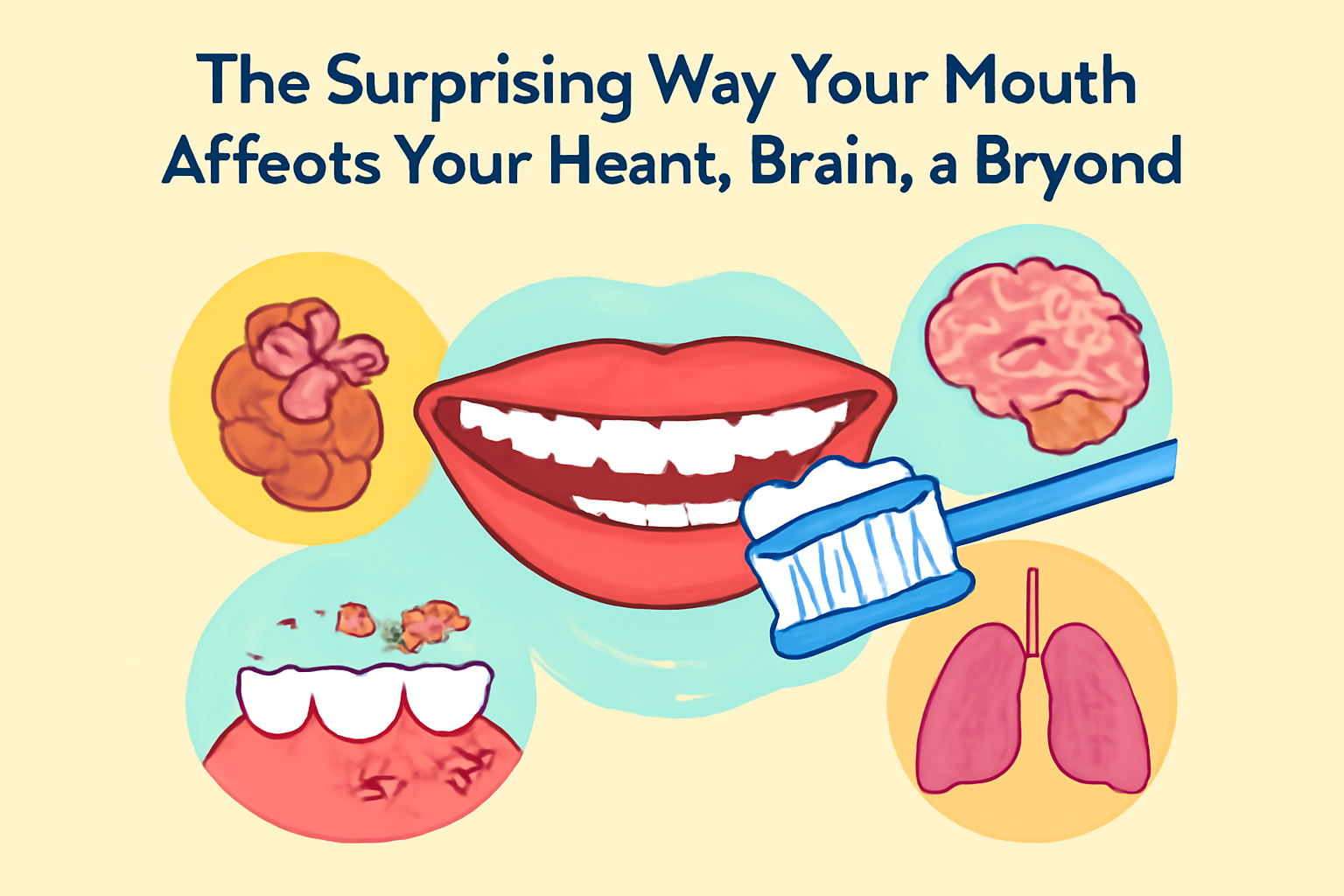Blog
The Surprising Way Your Mouth Affects Your Heart, Brain, and Beyond

When you think about your health your teeth and gums might not be the first things that come to mind. Most people see dental care as a way to avoid cavities or keep their smile bright. But research shows that oral health is deeply connected to your overall wellbeing influencing everything from your heart to your brain. That is why keeping up with regular check ups whether with your family dentist or a trusted clinic like a dentist Campsie residents rely on, can do more than just protect your smile. It could safeguard your long term health in ways you might not expect.
The Mouth as a Gateway to the Body
Your mouth is not just where you eat, talk and smile it is also a key entry point to your body. The health of your mouth can influence how your body functions in many ways. The mouth is full of bacteria, some of which are good, while others can cause problems. When you do not take care of your mouth properly these harmful bacteria can travel through your bloodstream and affect other parts of your body.
- Bacteria and Infection: Poor oral hygiene can allow harmful bacteria to build up on your teeth and gums. This can lead to gum disease which is a condition where the tissues around your teeth become inflamed and infected. In severe cases the infection can spread to other parts of the body.
- Inflammation: When your gums are inflamed due to gum disease this inflammation can spread to other areas of the body. Chronic inflammation is linked to a number of serious health conditions including heart disease and even Alzheimer’s disease.
The Link Between Oral Health and the Heart
One of the most surprising ways that oral health affects your body is through your heart. Research has shown that there is a strong link between gum disease and heart disease.
- Gum Disease and Heart Disease: People with gum disease are more likely to have heart disease and some studies suggest that gum disease might increase your risk of having a heart attack or stroke. This connection is believed to be caused by the bacteria from gum infections entering the bloodstream, which can then cause inflammation in the heart’s blood vessels.
- Clogged Arteries: Inflammation in the blood vessels can contribute to the buildup of plaque, which can clog arteries. This reduces the flow of blood and increases the risk of heart disease.
- Increased Risk of Stroke: Studies also suggest that gum disease may increase the risk of having a stroke. This is because the inflammation caused by gum infections can contribute to the formation of blood clots which can block blood flow to the brain.
Oral Health and the Brain

Another area where your mouth and body connect is the brain. Scientists have found links between gum disease and conditions like Alzheimer’s. The theory is that harmful bacteria can travel to the brain and contribute to inflammation there, which may speed up cognitive decline.
Beyond the Obvious: Other Surprising Links
Oral health does not just affect your heart and brain. There are several other surprising links between your mouth and other areas of your body.
- Diabetes: Gum disease makes it harder to control blood sugar levels, while high blood sugar can worsen gum problems. It is a two way street.
- Pregnancy: Expectant mothers with gum disease have a higher risk of premature birth and low birth weight babies.
- Respiratory health: Bacteria from the mouth can travel to the lungs, worsening conditions like pneumonia.
Practical Steps to Protect Your Health
Taking care of your mouth is one of the simplest and most effective ways to protect your heart, brain and overall health. Here are some practical steps to help you take better care of your mouth
- Brush twice daily using fluoride toothpaste, making sure to reach all surfaces of your teeth.
- Floss once a day to clean where a toothbrush can not reach.
- Limit sugar and acidic foods that can damage enamel and feed harmful bacteria.
- Stay hydrated to help wash away food particles and keep saliva flowing (saliva naturally protects your teeth).
- Don’t skip dental visits a professional cleaning and check up every six months can spot issues before they escalate.
Changing How We Think About Dental Care
We often think of dental care as a separate issue from our overall health. But, as we have learned, the health of your mouth can have a direct impact on your heart, brain and other vital organs. It is important to think of your oral health as an integral part of your overall health.
A Small Habit With a Big Impact
Your daily brushing and flossing routine might seem small, but it has ripple effects across your body. By caring for your teeth and gums, you’re also lowering risks of heart disease, protecting your brain, and supporting healthier outcomes for other conditions.
Final Expert Advice
Good oral hygiene is not just about having a bright smile. It is about taking care of your overall health. By committing to your oral health you can reduce your risk of serious health problems like heart disease, Alzheimer’s and diabetes.
